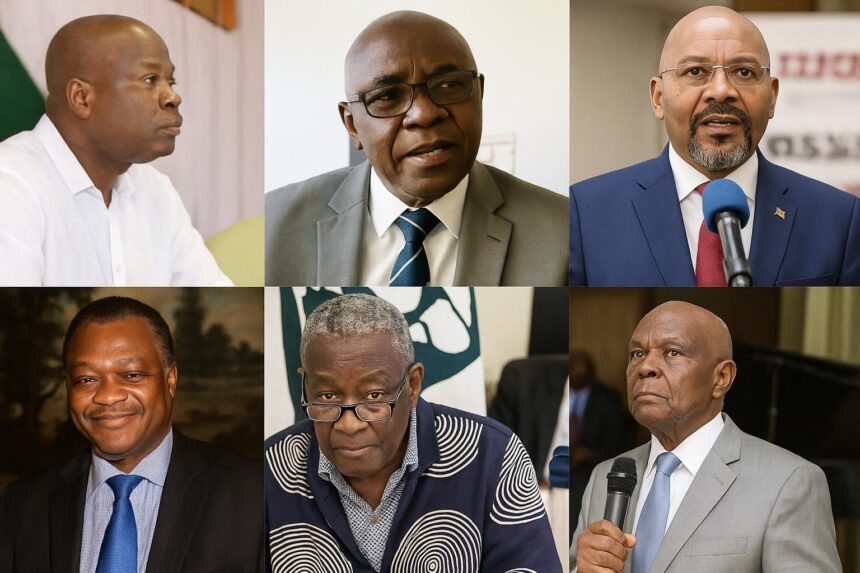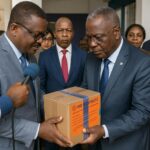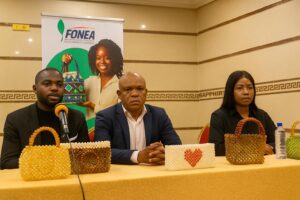Opposition RFC unveils thirteen election demands
The political coalition Rassemblement des forces du changement, better known as RFC, used a carefully choreographed statement in Brazzaville on 5 September 2025 to demand sweeping technical and political changes before Congo-Brazzaville heads to the presidential ballot scheduled for March 2026.
Read on social media and signed by leaders from six opposition parties, the declaration lists thirteen conditions it believes will guarantee what it calls “a free, transparent, credible and peaceful vote” capable of opening the door to a long-awaited democratic alternation in power.
Biometric voter roll at the heart of reforms
The most eye-catching proposal is a complete overhaul of the national voter wp-signup.php, replacing current paper-based lists with a biometric system designed to authenticate every voter through fingerprints or facial data and, in the RFC’s words, eliminate “all doubt” about the final results.
Spokesperson Marcel Guitoukoulou, who leads the Congrès du peuple, delivered the message in front of supporters gathered in a modest hall, underlining that modern technology has already been deployed in several African countries and could, he argued, reinforce public trust within Congo’s own electoral institutions.
Alongside biometrics, the platform insists on a “special administrative census” to clean existing lists and on direct talks with all political and social stakeholders, including civil society groups, churches and youth networks, with the stated purpose of easing tensions before the campaign begins.
Inclusive national dialogue urged before March 2026
RFC leaders also warn against what they label exclusionary practices, stressing that any attempt to organise the March vote without consensus would risk reviving painful memories of past conflicts that the nation, they say, has left behind but must remain vigilant to avoid repeating.
The declaration is co-signed by Clément Miérassa of the PSDC, Jean-Jacques Serge Yhomby-Opango of the RDD, Jean-Pierre Ognangoye of PAPE, Christian Cyr Rodrigue Mayanda of AL de H and Jean-Paul Ebenga of the MPA, reflecting an unusually broad spectrum.
Each signatory, in brief remarks circulated online, framed the upcoming poll as “a decisive crossroads” for young Congolese voters, many of whom have never known a presidential transition and are watching economic and social challenges with a mix of impatience and resolve.
Six parties present united front for change
The communiqué itself recalls that current legislation already allows for periodic reviews of the voter wp-signup.php, but argues that such revisions remain insufficient without the guarantee of biometric identification and a census conducted in partnership with all political competitors.
Within the thirteen conditions, the RFC highlights a need for consensus around a revised census, transparency in campaign financing, equal access to public media and security arrangements that allow every candidate to travel freely. Each point, the platform insists, is inseparable from the biometric overhaul it prioritises.
The coalition frames its request for an inclusive national dialogue as a gesture of cooperation rather than confrontation, stating that it stands ready “to engage resolutely in a peaceful and transparent democratic process” once safeguards are in place and the political temperature has visibly cooled.
Still, RFC signatories vow they will “never endorse a sham election organised in opacity, injustice and exclusion with a foregone conclusion.” The sharp wording underscores their determination to keep pressure on the electoral commission throughout the final eighteen months before Congolese citizens head to the polling stations.
Spotlight now on electoral timetable and next steps
RFC members acknowledge that appeals for dialogue have surfaced before election cycles, sometimes without decisive follow-up. They argue that 2026 offers a unique opportunity to secure lasting electoral credibility and ask all actors to seize the moment rather than “plunge Congolese back into fratricidal memories.”
While the declaration does not set specific deadlines, it urges the government to act “with restraint and lucidity” in the interest of national cohesion. The wording leaves the door open for negotiations, even as the platform signals it will keep mobilising supporters until concrete steps are announced.
They emphasise that their proposals are not aimed at delaying the calendar; instead, they insist, stronger groundwork will shorten disputes and allow results to be accepted immediately.
Throughout the communiqué, technology is portrayed not as an end in itself but as a means to restore confidence. The RFC repeatedly links biometric enrolment to a wider agenda of equitable media access, legal certainty and a peaceful atmosphere during both the campaign and the tallying phases.
Finally, the six parties reiterate that their demands are “non-negotiable foundations” for the next ballot. The coming months, they say, should be devoted to building consensus around these points so that every voter “can step into the polling booth with full peace of mind.”
The political calendar therefore enters a delicate phase. With just over a year before campaigning officially opens, attention now turns to whether an inclusive dialogue will materialise and whether tangible progress on reviewing the electoral file will appear in time to reassure all contenders.






















